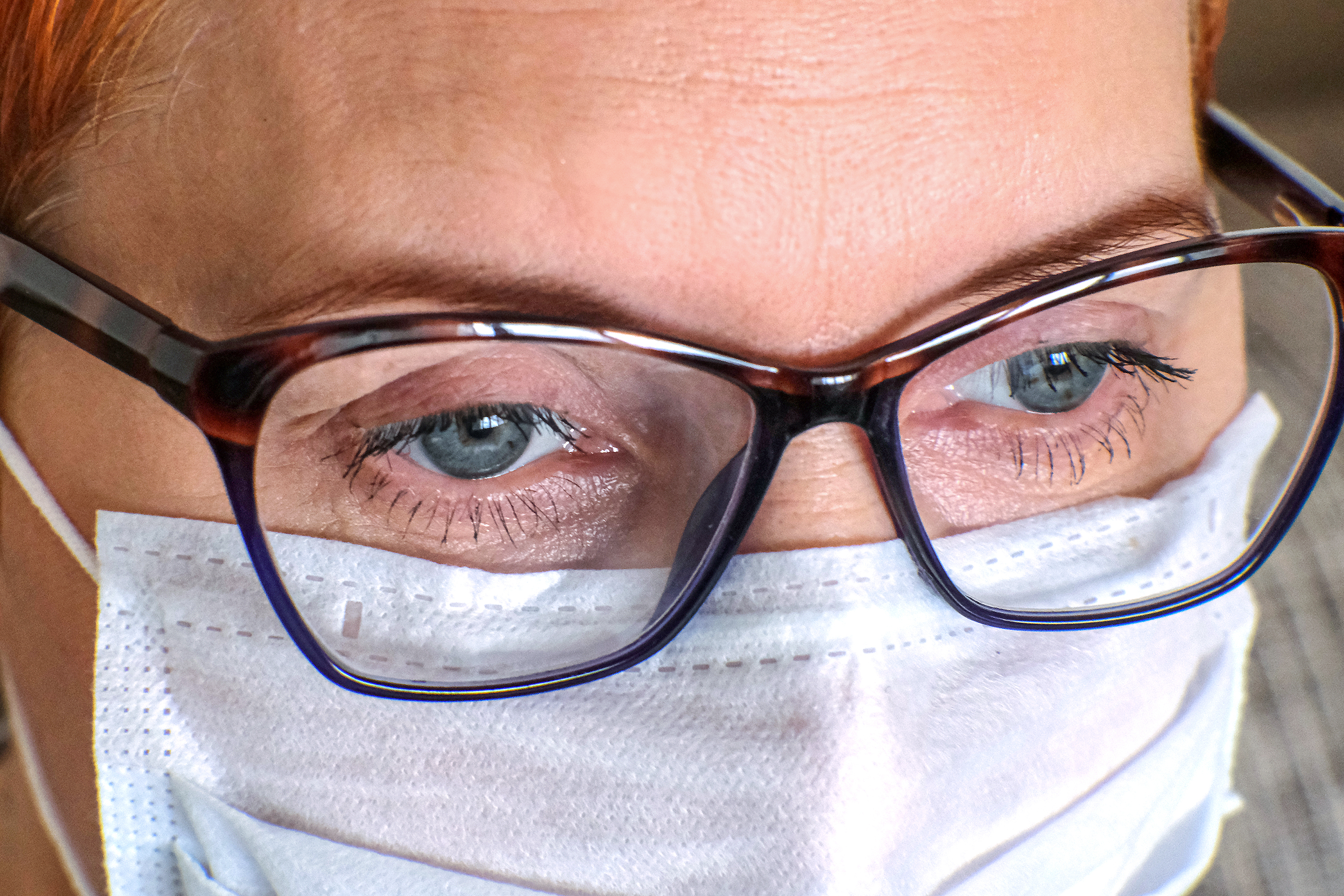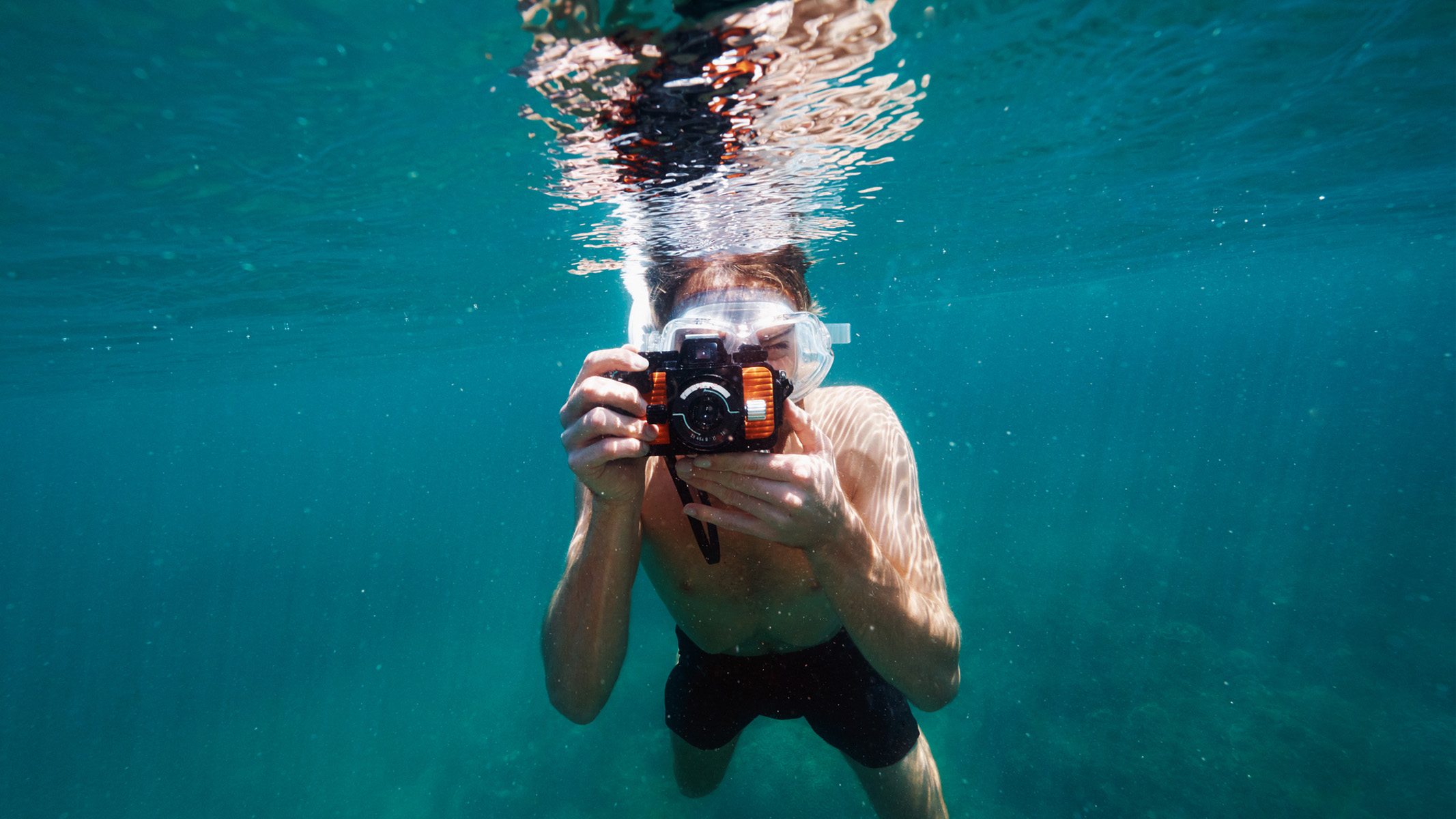Could wearing glasses lower the risk of COVID-19?
A study from China found that the proportion of COVID-19 patients who wore glasses was much lower than that of the general population.

People who wear eyeglasses may be at lower risk for catching COVID-19 than those who don't wear glasses, early research from China suggests.
The study researchers analyzed information from 276 patients at a hospital in China's Hubei province and found that only about 6% said they wore glasses for more than 8 hours a day, all of whom had myopia, or nearsightedness. That's much lower than the estimated rate of myopia in Hubei from previous research, which was 31.5%.
The new study, published Wednesday (Sept. 16) in the journal JAMA Ophthalmology, "is provocative and raises the possibility that use of eye protection by the general public might offer some degree of protection from COVID-19," Dr. Lisa Maragakis, an associate professor of medicine and epidemiology at Johns Hopkins University School of Medicine, who was not involved in the study, wrote in an editorial accompanying the study.
However, Maragakis cautions that it's much too early to recommend that everyone don eyeglasses, goggles or face shields in public, in addition to already wearing face masks, to protect against COVID-19. The new study has a number of limitations — for starters, the study was relatively small and included patients at a single hospital. Importantly, the study found only an association and cannot prove a "cause-effect" relationship between wearing glasses and being protected from COVID-19, Maragakis said.
Maragakis called for more studies to confirm the findings and to determine "whether there is any incremental benefit to wearing eyeglasses or other forms of eye protection in public settings, in addition to wearing a mask and physical distancing, to reduce the risk of acquiring [COVID-19]."
Related: 14 coronavirus myths busted by science
Eye protection
Although it's recommended that health care workers wear face shields or goggles, along with face masks, to lower the risk of catching COVID-19, public health guidelines generally don't promote the use of eye protection for the public; they instead stress the importance of masks, physical distancing and hand washing. (The CDC does not recommend face shields as a substitute for face masks.)
Get the world’s most fascinating discoveries delivered straight to your inbox.
The study authors, from Suizhou Zengdu Hospital in Suizhou, China, decided to look into the link between eyeglasses and COVID-19 prevention after they noticed that few patients with COVID-19 at their hospital wore glasses.
They enrolled the 276 patients in their study between Jan. 27 and March 13, 2020. All participants were asked if they wore eyeglasses, how long they wore glasses during the day and why they needed glasses.
Overall, 30 participants, or about 11%, said they wore glasses, but only 16 participants, or 5.8%, wore glasses for more than 8 hours a day and that was for myopia. (The other 14 participants wore reading glasses.)
To compare this with the general population, the researcher drew on a study conducted in 1985 among students in Hubei province, which showed that about one-third had myopia, nearly all of whom wore glasses.
However, Maragakis noted that this comparison group is a limitation of the study because the research took place "decades earlier" and wasn't specific to Suizhou.
But in general, myopia is a common condition, estimated to affect 27% of the world's population in 2010, with the highest prevalence in East Asia, according to the World Health Organization.
None of the participants in the study wore contact lenses, so whether wearing contact lenses affects the risk of COVID-19 still needs to be studied, the authors said.
Behind the link
The researchers did not examine why glasses may reduce the risk of COVID-19, but they hypothesize that wearing glasses discourages people from touching their eyes, which would reduce the chances that people transfer virus from their hands to their eyes. It's known that eye cells have receptors that allow SARS-CoV-2, the virus that causes COVID-19, to enter the body; and the virus has been detected in the eyes of COVID-19 patients.
Maragakis added that eyeglasses may also "serve as a partial barrier that reduces the inoculum [amount] of virus in a manner similar to what has been observed for cloth masks."
"These findings suggest that the eye may be an important infection route for COVID-19,
and more attention should be paid to preventive measures such as frequent hand washing and avoiding touching the eyes," the study authors concluded.
Still, in addition to further studies to confirm the findings, researchers also need to consider possible unintended consequences of a general recommendation to wear eye protection in public. People who aren't accustomed to wearing glasses or goggles might actually touch their face more often when removing, replacing or adjusting the eyewear, Maragakis said.
Originally published on Live Science.

Rachael is a Live Science contributor, and was a former channel editor and senior writer for Live Science between 2010 and 2022. She has a master's degree in journalism from New York University's Science, Health and Environmental Reporting Program. She also holds a B.S. in molecular biology and an M.S. in biology from the University of California, San Diego. Her work has appeared in Scienceline, The Washington Post and Scientific American.
